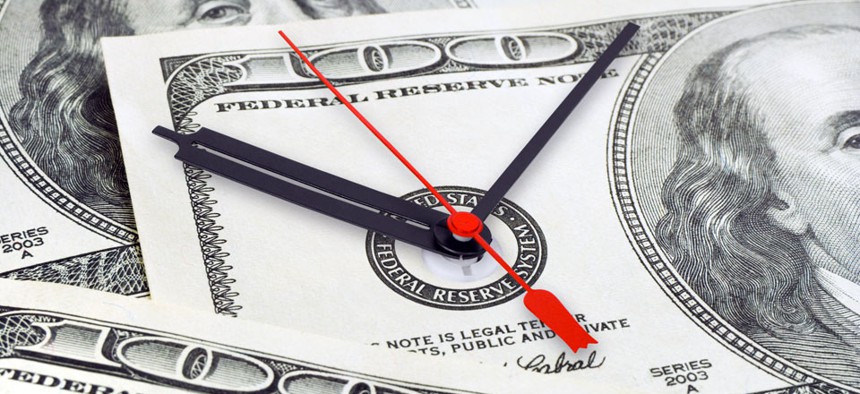
Tatiana Popova/Shutterstock.com
Thinking About Launching a Side Business?
The ethics rules aren’t always clear for feds, but outside work is allowed.
When Febe Hernandez started tinkering around with beads at a Beadazzled store in 2010, she discovered she had a talent for creating beautiful gem-studded necklaces and earrings. “I was overwhelmed by the desire to create,” she recalls. The 20-year veteran of a three-letter agency in Washington soon started selling her creations. At her first show, she sold nearly $2,000 worth of jewelry.
Hernandez, now 60, soon registered her business as Designs by Febe and started expanding with regular trunk shows and a website. She has plans to open bricks-and-mortar stores in Los Angeles, New York City, and Washington by 2020. Hernandez says that when she retires in the next five to seven years, she’ll focus on her jewelry business full time. “The plan is for it to provide income in retirement,” she says. (While her agency approves of her side business, it asks that she not publicly identify it by name.)
For federal employees like Hernandez, a side business can provide much-needed extra income as well a as a retirement plan. In addition to the financial security, it offers a creative outlet and a deep sense of satisfaction. Hernandez says that as much as she knows that her federal job helps others, there’s nothing like the satisfaction that she gets from hiring young people from her hometown -- the Bronx -- to help her with her business.
She’s part of a growing movement of Americans launching micro-businesses on top of full-time jobs. According to the Bureau of Labor Statistics, more than 7 million workers -- about 5 percent of the workforce -- hold more than one job. The rate is 7 percent among those with professional jobs and advanced degrees. Those percentages probably vastly undercount the actual number of side-business owners, since the BLS only counts those who reported they held “more than one job” in the last week. Those that do just occasional freelance or creative work are not necessarily counted.
As common as side businesses are today, employers’ policies on outside work aren’t always clear cut, and the rules can be particularly stringent for federal employees. Avoiding conflicts of interest, abiding by all laws and agency policies, and following ethical guidelines are paramount, especially given the additional scrutiny of public sector employees. Still, even within those constraints, there’s flexibility to unleash your inner entrepreneur.
The Office of Government Ethics specifies that federal employees cannot take on any additional work that conflicts with their official duties, or accept money for teaching, speaking or writing that relates to their official duties. Some noncareer employees and appointees face an all-out ban on earning outside income while in office, and agencies can require employees to get explicit approval before starting any kind of business on the side. At least 44 agencies have supplemental standards of conducts, and many deal specifically with outside activities.
That’s why the first step is to check with your agency’s ethics officials to make sure you have the go-ahead. That’s exactly what Hernandez did. “We have a strict internal process. I immediately went to my internal affairs office. They vetted my website and if someone wants to interview me [related to the jewelry business], I have to check with them,” Fernandez explains, adding that employees are allowed to have outside employment as long as there’s no conflict of interest.
Citing the pay gap between federal workers and those in the private sector, the organization Young Government Leaders has called for the Office of Management and Budget to provide a list of approved side businesses that federal workers could pursue, as well as to lay out potential ethical concerns and solutions. That way the process for getting approval could be more streamlined. When Miguel Joey Aviles, a recruitment and outreach strategist for the Defense Department and chief learning officer for YGL, wanted to launch his own side business, he couldn’t find detailed guidance from his agency. “I had to request a meeting with the lawyers of my agency. They had to analyze everything,” he says. In the end, the lawyers told him to get explicit permission each time he started working with a new client.
As more members of the millennial generation join the federal workforce, Aviles’ situation will become increasingly common. A recent survey from the Young Entrepreneur Council found that one in three millennials (who range from late teens to 20s) have launched a side business, and many do so while they’re still in college.
Even with agency approval, running a side business on top of a full-time federal job can be challenging. Hernandez says she works 46 hours a week with a long commute. She squeezes in her creative time in the evenings and weekends. Still, that sacrifice is well worth it to her. Her day job might be about protecting Americans, but at nights and on the weekends, she can focus on making them feel beautiful, too.
Kimberly Palmer is the author of the new book “The Economy of You: Discover Your Inner Entrepreneur and Recession-Proof Your Life” and senior money editor for U.S. News & World Report, where she writes the Alpha Consumer blog. She covered government contracting for Government Executive from 2004 to 2007.
(Image via Tatiana Popova/Shutterstock.com)






